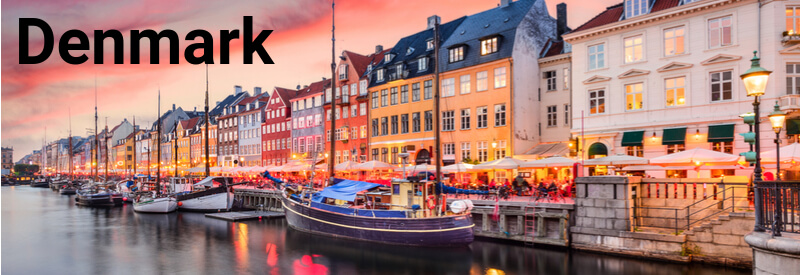Newsletter Signup - Under Article / In Page
"*" indicates required fields
What do you need to kickstart your own biotech company? A great idea, of course. Industry knowledge, a plus. Money… This could be tricky.
Breaking into the biotech industry is one of the most expensive decisions that you can make. First, you need ground-breaking science that has what it takes to change its respective field, whether this is the next best cancer treatment or the ultimate, environmentally-friendly energy source. Next, you need money!
Biotechnology is high-risk, making it difficult to convince investors to dig into their pockets. This isn’t so much of a problem in other industries, for example, e-commerce. Take Zalando, a company born not far from the home of Labiotech in Berlin. Founded in 2008, it recorded net sales of €6M just one year later. It has grown at breakneck speed, now employing around 4,000 people and making over in €1B turnover – all before launching its IPO.
In contrast, biotechs face relentless quality testing that not only increases costs but also the time to enter the market. For that reason, finding a source of money to get you up and running is crucial. We have scoured Europe to find the best money pots to get your biotech up and running.
The list, as usual, is in no particular order. Thanks to all the contributors that helped to bring it together.

Despite its European membership hanging by a thread, the UK remains a biotech powerhouse – the third largest hub in the world. British biotechs raised £1.3B (€1.44B), with £681M (€756M) coming from VCs – more than for any other European company.
Innovate UK offers an R&D grant for a range of products, from pharma through to digital health. It runs various programs to help companies commercialize their ideas. Companies spinning out of universities should approach the Royal Academy of Engineering, which provides up to £60,000 (€67,000) equity-free funding, training and personal mentoring from top engineering entrepreneurs.
Some universities have their own tech transfer setups, for example, Oxford University Innovations, Cambridge Innovation Capital and Touchstone Innovations – which works with the UK’s “golden triangle”. Similar initiatives are found at world-class research institutes including the Babraham Institute – home to a number of standout biotechs – and The Francis Crick Institute, which launched two spinouts within its first year.
The UK government has introduced tax-free schemes to encourage business angel investment in early-stage companies. The seed enterprise investment scheme (SEIS) allows companies under 2 years old to receive up to £150,000 (€167,000), and the enterprise investment scheme (EIS) allows companies under 10 years old to receive up to £5M (€5.6M).
It’s no different in the UK, VCs can be reluctant to make early-stage investments. But, if you can bring a British VC like Medicxi, Abingworth or Syncona on board, you’re in luck as these are some of the best investors around. There are plenty of smaller VCs that have invested in biotech startups. Deep Science Ventures helps to start companies from scratch – not even requiring a product, just a problem they want to tackle.

German biotech is thriving, with records for total turnover, the number of new companies, and employment all broken in 2016. So, how do all of these German biotechs get started?
EXIST helps students, graduates and researchers from universities to turn their idea into a business. It’s Business Startup Grant covers living costs and materials for up to one year. If successful, growing biotechs go to High-Tech Grunderfonds. Since 2005, it has invested €820M in over 470 companies, including Cardior, a company that caught the attention of Markus Hosang, General Partner at BioMed Partners.
TVM, Wellington and Dievini are three of our top 18 European VCs, which together manage over €2.65B. They have worked with companies such as Evotec, Immatics, Themis and CureVac. Germany is also home to three of our top 15 biotech incubators in Europe, which have hosted LiquidGenomics, Curacyte and MorphoSys, now Germany‘s biggest public biotech.

Back in 2015, France was home to around 400 companies, with 50 of these boasting a total market cap of €4.2B. Xavier Duportet, CEO of Eligo Bioscience gave us his top tips for getting started in biotech: “Find the right problem, then the right technology…Talk with investors as soon as possible, meet with them before you really need their money… Surround yourself with key ecosystem people, successful entrepreneurs, find a mentor!”
The first port of call for young biotechs in France is bpifrance. The setup describes itself as “the bank of entrepreneurs”, as it offers €50,000 loans to young businesses, as well as equity financing internally or in cooperation with VCs. i-LAB provides grants of up to €450,000 and has helped to create 1,828 companies – 19% of which are in the pharmacy and biotechnology industries. iBionext supports healthcare startups developing technology in the neural field. In just 5 years, it has created 8 companies that have raised over €330M.
Once a company gets off the ground, it can approach VCs, for example, Sofinnova which is the largest VC in Europe with a strong track-record of successful investments, including Actelion and DBV Technologies.

The Danish biotech industry began life over 150 years ago focusing on agriculture, and is now one of the best in the world. Over 160 companies that employ more than 40,000 people and this is partly down to fantastic support on offer to startups.
Nordic Mentor Network for Entrepreneurship (NOME) links young biotechs with world-class mentors to guide them through their early days in the industry – no fee or equity required. The program looks for Nordic-based projects or startups in the biotech, medtech or pharma fields with high commercial potential. Biotechs taking part will also have access to an international network and the opportunity to go on a bootcamp in the US.
Here at Labiotech, we rate Copenhagen BioScience Park (COBIS) in the top 15 incubators in Europe. Situated in Copenhagen’s Medicon Valley, a world-leading biotech cluster, it offers great facilities and accelerace – one of the world’s top 10 seed accelerators that has helped 69 startups so far.
Finally, Novo Seeds gives great ideas money to develop into potentially life-changing products. The group has two programs: pre-seed grants to support early-stage, ground-breaking research with commercial potential and a seed program where the group helps to build the company to attract VCs in return for some equity.

Catalonia is renowned for its biotech scene, but let’s not forget about the rest of the country. In 2014, the Spanish biotech sector generated revenue of €108B. The hub is still developing frameworks to support young companies, but two founders told us their stories…
Marc Martinell, CEO of Minoryx – which develops therapies for rare genetic diseases, for example, X-ALD, told us: “We essentially started the company with our own savings. During the first 2 years, most of our funding came from public funds – mostly soft loans and some grants.” Marc summed up the current situation in Spain: “The key question is the stage of the program”. Basically, once you have a product, VCs like Ysios, Alta Life Sciences and Caixa Capital Risc will be interested as the risks are lower.
Amadis Pages, Moirai Biodesign’s Founder & CEO, explained how the company got started: “We were discussing the idea of starting a company… Then we heard about RebelBio, and we decided to take a chance… Acceptance into the accelerator was the spark that set everything in motion.” With Spain’s support for young companies still developing, companies may be forced to look overseas for help, for example, to Ireland in the case of RebelBio.
The company also networked with business angels, and it is focusing on securing grants, for example, NEOTEC from the Spanish government or the European Commission’s SME Instrument.

Italy is a rising star in European biotech and it is working hard to catch up of with the continent’s leaders. At the end of 2015, it had almost 500 companies generating over €9.4B in turnover annually.
New programs are popping up across Italy. Sofinnova was instrumental in creating Biovelocità, a biotech accelerator prepping early-stage projects for VCs and pharma companies. It does this by providing the required financial and managerial resources. A recently initiated project targeting diabetes in collaboration with the prestigious San Raffaele hospital has already given rise to a startup, Enthera Srl.
Initiatives like AuroraTT hope to plug the gap in funding that makes it difficult for promising research to make the jump across to industry. ITAtech – formed by the European Investment Fund and Cassa Depositi e Prestiti – has made €200M available for tech transfer. Scientifica Capital is a Swiss VC but it has also committed €200M to fund Italian biotech research.
The government is keen to capitalize on the country’s extensive research – for which it is second only to Germany in terms of the number of publications in Europe. It also offered up €800M to convert Milan’s former expo area into Human Technopole, which looks at personalized approaches to cancer and neurodegenerative diseases. National banks are also toying with the idea of investment in the sector.
So, here are the best avenues to get your biotech started. If you know of an initiative that we haven’t mentioned or about a country that we haven’t covered, please comment below.
Images – DRogatnev, Pajor Pawel, TTstudio, Brian Kinney, Sean Pavone, Kanuman, Canadastock / shutterstock.com






